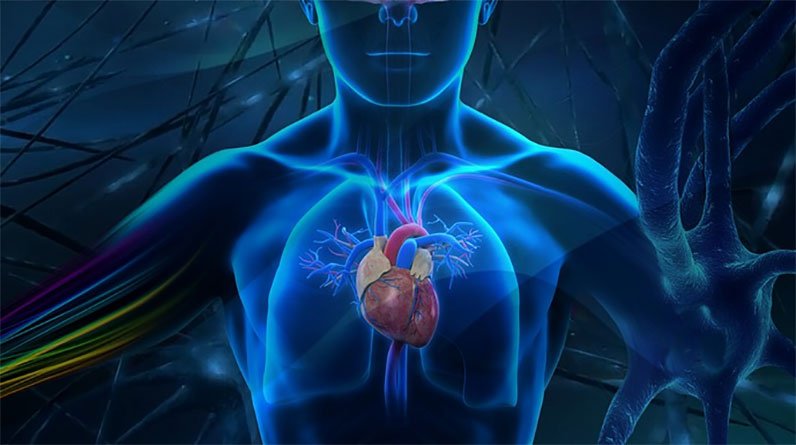
Signs and Symptoms of Hyperthyroidism
Hyperthyroidism, while not as prevalent as hypothyroidism, still affects a significant portion of the population, with a prevalence rate of around 1.3% of the population. However, the prevalence rate increases with age, and it’s often seen in older women (a 4-5% prevalence rate).
Whether you have symptoms of an overactive or underactive thyroid, it’s essential to understand the role of the thyroid gland in the body and how to treat or prevent dysfunction. Thus, being able to identify common signs and symptoms of hyperthyroidism is the way to start.
In what follows, we’ll briefly define what hyperthyroidism is, discuss its manifestations, explore its more general signs and symptoms, and discuss further details on this thyroid condition.
Overview of Hyperthyroidism
Hyperthyroidism, an overactive thyroid, is a thyroid condition involving production of too much thyroid hormone. Primary hyperthyroidism is when the cause of this problem begins within the gland. Secondary hyperthyroidism is when the cause of excess thyroid hormone is due to the overproduction of thyroid-stimulating hormone.
This can have a significant impact on the body, particularly on heart health. The symptoms, side effects, and complications of hyperthyroidism can vary depending on the individual and the underlying cause of the dysfunction.
Several risk factors are associated with hyperthyroidism, including age, sex, family history, personal health, and pregnancy. For example, older women are more likely to develop an overactive thyroid than younger women. Similarly, those with a family history of thyroid dysfunction or those who have had previous thyroid issues are at a higher risk of developing hyperthyroidism.
Hyperthyroidism has been further categorized into some specific conditions, such as Grave’s disease. Grave’s disease is the most common type and cause of hyperthyroidism and is unique in that it’s an autoimmune condition. In this process, certain complications can arise, making it a more serious condition to manage.
Signs and Symptoms of Hyperthyroidism
It can be challenging to identify hyperthyroidism accurately due to the many similar symptoms it shares with other conditions. However, if you experience a particular combination of certain symptoms, it is more likely that hyperthyroidism is the cause.
The following are several primary signs and symptoms of hyperthyroidism:
• Weight Loss: One of the most common symptoms of hyperthyroidism is weight loss, even when appetite and food intake are increased. This is caused by an increase in the body’s metabolic rate, which leads to increased energy expenditure and a decrease in the body’s ability to store fat. The body’s absorption of nutrients may also be reduced, leading to malnourishment and weight loss.
• Nervousness: People with hyperthyroidism may experience nervousness or anxiety, which can manifest as jitteriness, restlessness, or trouble sleeping. This is also the result of thyroid hormone effects on the body’s metabolism and energy levels. Anxiety symptoms may be severe in some cases leading to disruption of one’s daily activities.
• Sweating: Hyperthyroidism can cause increased sweating, which can be particularly noticeable at night. The increased metabolism causes the body to produce more heat, which leads to sweating as a means of thermoregulation. Individuals also will have heat intolerance.
• Increased Appetite: The increased metabolism caused by hyperthyroidism can lead to an increased appetite. Yet, individuals will still experience unjustified weight loss despite eating more.
• Irritability: Some people with hyperthyroidism may become irritable or easily angered. People often describe the condition as being “on edge” and have difficulty controlling their temper.
• Rapid Heart Rate: Hyperthyroidism can cause a rapid heart rate, which can be felt as palpitations or fluttering in the chest. Thyroid hormone has effects on the cells of the heart, which cause faster activity of the cardiac muscle and rapid heart rate. In some cases, patients can develop atrial fibrillation, a serious heart rhythm disorder.
• Tremors: Hyperthyroidism can cause tremors or shakes, particularly in the hands. This can be caused by the effects of the thyroid hormone on muscle tone and coordination.
• Anxiety: Hyperthyroidism can cause anxiety, which can manifest as nervousness, restlessness, or trouble sleeping.
• Exophthalmos: Some people with hyperthyroidism may develop exophthalmos, a condition in which the eyes protrude forward from their normal location. This can cause discomfort and double vision.
Causes and Complications of Hyperthyroidism
The potential causes of the overproduction of thyroid hormone can vary widely, including other diseases, autoimmune conditions, medications, supplements, and certain tumors.
As the disease persists, further complications often develop. These complications can include bone weakness, vision impairment, skin irritation and swelling, heart complications, hair loss, and nausea. These symptoms can vary depending on the underlying cause of hyperthyroidism.
One of the most common causes of hyperthyroidism is an imbalance of iodine in the body. This can be caused by a large amount of iodine in the diet or overconsumption of iodine.
Another cause is benign or malignant tumors in the thyroid gland. Some medications, such as Epoprostenol, can also cause hyperthyroidism. Additionally, some supplements and other diseases and health conditions, such as autoimmune thyroiditis or thyroid cancer, can also cause hyperthyroidism.
Another potential cause of hyperthyroidism is an increase in the production of thyroid-stimulating hormone (TSH) from the pituitary gland. This type of hyperthyroidism is known as TSH-induced hyperthyroidism.
Final Thoughts
Hyperthyroidism is a health condition that causes several unpleasant symptoms, side effects, and complications. With timely and effective treatment, however, symptoms can be managed and complications prevented.





